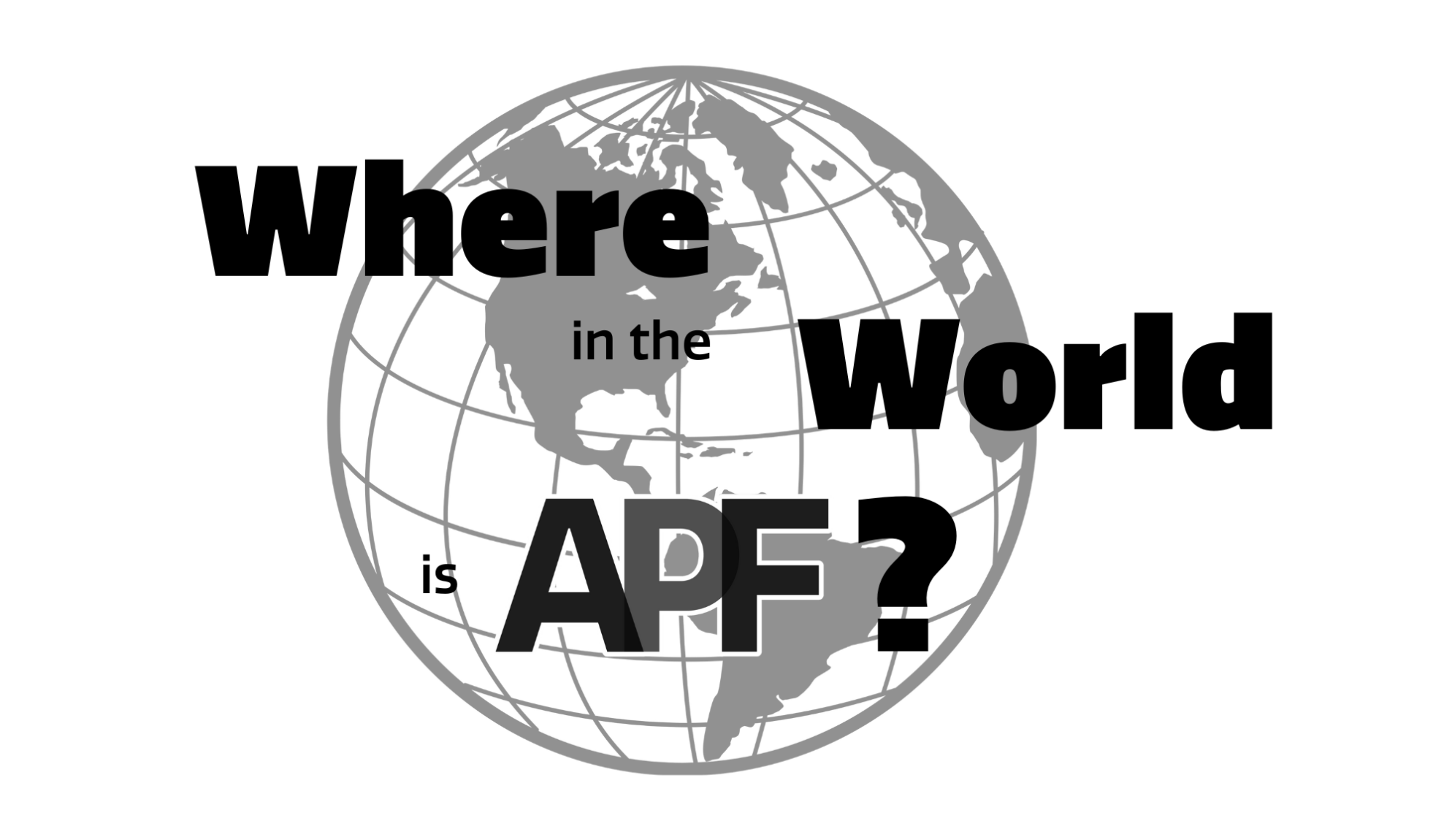Where in the World is APF with Elana Israel


Welcome to “Where in the World is APF”, our recipient highlight series where we catch up with our grant, scholarship, and award recipients all over the world!
Today, we’re speaking with Elana Israel, who received a 2023 Elizabeth Munsterberg Koppitz Child Psychology Graduate Student Fellowship for the project, “Reward Processing and Real-World Affect Reactivity Among Adolescents at Risk for Major Depressive Disorder.”
Can you give us an update on your career and research since being awarded the Elizabeth Munsterberg Koppitz Child Psychology Graduate Student Fellowship in 2023?
I am currently a fifth-year Clinical Psychology graduate student at Binghamton University (SUNY) working with Dr. Brandon Gibb. I will begin my pre-doctoral internship at the University of Illinois Chicago Department of Psychiatry this summer where I will continue my clinical and research training. Since being awarded the APF Koppitz Fellowship, I have made substantial progress on my dissertation project, which focuses on how neural measures of social and monetary reward processing relate to real-world experiences of affect and pleasure among adolescents at risk for depression. I am almost finished with data collection for the project and hope to analyze the data and interpret the study findings within the next few months!
In what aspects has your APF-funded research impacted your career as a researcher and your contributions to the area of child / youth mental health?
The APF Koppitz Fellowship was instrumental in allowing me to develop as a child/adolescent mental health researcher. Not only did the fellowship provide funding for me to begin my dissertation project, but it also provided stipend support which allowed me to focus a majority of my time on my research project and training. Since receiving the Koppitz Fellowship, I have expanded my knowledge on using event-related potentials (ERPs) to capture neural markers of depression risk in youth and have been able to disseminate research findings focused on youth mental health. I have also been able to receive training in all different aspects of conducting child/adolescent mental health research ranging from statistical analysis training to learning about ethical considerations when working with youth in a research setting. I am grateful that the Koppitz Fellowship opened up more time for me to receive this crucial training!
Have you received subsequent funding, awards or other significant accomplishments since receiving your APF grant?
Yes! Since receiving my APF funding, I have received a National Research Service Award (F31) from the National Institute of Mental Health (NIMH), a $7,500 SUNY Graduate Research Empowering and Accelerating Talent Award, and a Binghamton University Graduate Student Award for Excellence in Research.
How has your research supported the mental health and well-being of children and youth?
The goal of my research is to improve our ability to identify youth most at risk for depression. I am particularly interested in how environmental (e.g., parent-child relations, peer stress) and biological processes (e.g., brain activity, psychophysiology) interact to confer risk for depression. One focus of my research has been on how youth’s brain responses to rewards in their environment relate to risk for depression, as we think that reduced responsiveness to rewards is linked to loss of interest and pleasure (a core feature of depression). My dissertation project, which is funded by an APF Koppitz Fellowship, seeks to validate the use of this neural activity as a marker of depression risk by examining whether reward processing is associated with adolescents’ moods and experiences of pleasure in the real-world. In other words, do adolescents’ brain responses to rewards, observed in the laboratory, translate to actual depression-relevant symptoms in the real-world (assessed using smartphone surveys)? Another aim of my research is to explore whether monetary versus social rewards better predict risk for depression in adolescents. Ultimately, I hope this research can help us target which adolescents are most at risk for depression and how we can best intervene.
How can the field of psychology effectively support the mental health and well-being of children and youth and contribute to lasting, positive change in their lives and communities?
A big challenge for the field of psychology is the lack of resources available for youth with mental health difficulties. Many of the teens who have participated in my dissertation project are really struggling and cannot find therapists who specialize in youth mental health. This is particularly a problem for teens who live in more rural areas. It is crucial that the field of psychology find effective and accessible interventions and ways of delivering them to under-resourced families. I also think early interventions that teach children and families positive communication and adaptive coping skills can be helpful in enhancing the well-being of youth at risk for psychopathology.
How have you used the outcomes, or how do you plan to use the outcomes from your APF-funded research to inform future projects, programs, or policies?
My hope is that my APF-funded research project can help to inform interventions that are geared towards preventing the onset and worsening of adolescent depression. I would love to be a part of research that leverages our knowledge of neural reward processing and depression to establish interventions aimed at changing how adolescents respond to and experience rewards in their environment. There is already great research being done on interventions aimed at helping adolescents engage in meaningful activities and enhance their experiences of positive emotion. My hope is that my project could bring us one step closer to understanding which adolescents could benefit most from interventions that target the reward system.
Do you have any advice for future APF applicants and other aspiring researchers doing similar work in the field?
My biggest piece of advice for graduate students is to apply for awards/fellowships/grants even if you think you won’t get them! I’ve applied to many things that I was almost certain I wouldn’t get and while I have certainly experienced lots of rejection, I also have been very fortunate to receive awards that I didn’t think I’d be selected for. Also, when designing a research project during graduate school, really think about balancing exciting ideas with what is feasible to complete during graduate training given constraints on time, resources, etc. You’ll hopefully have the rest of your career to continue building on those ideas!
Want to contribute to projects like this and create impact with psychology? Donate to APF today!
Topics: Children's Mental Health Where In The World Is APF
Discover More

Putting Psychology to Work: Direct Action Starts at Home
From the Desk of Dr. Quist Ryder is a space for APF’s CEO to share insights and observations on APF initiatives, the state of psychology, …

2025 National Register Internship Scholarships: Western US
We are thrilled to have our 2024 recipients relocating across the continent, and look forward to witnessing the widespread impact of their work through APF’s support! Explore below to learn more about our remarkable scholarship recipients who are relocating to Southeastern and Mid-Atlantic United States for their internships.

2025 National Register Internship Scholarships: Southeastern & Midwestern US
We are thrilled to have our 2024 recipients relocating across the continent, and look forward to witnessing the widespread impact of their work through APF’s support! Explore below to learn more about our remarkable scholarship recipients who are relocating to Midwestern and Western United States for their internships.